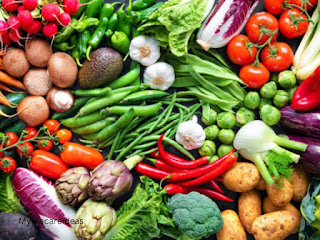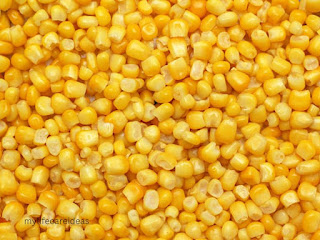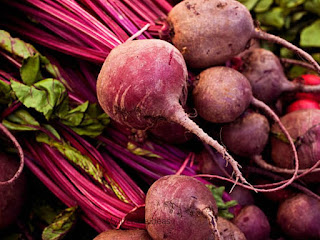Which vegetable is good for weight gain? However, there are some high-calorie vegetables that you can add to your diet if you are looking to gain weight.
One example of a high-calorie vegetable is sweet potatoes. Sweet potatoes are a good source of carbohydrates, which are important for providing energy, and they also contain vitamins and minerals such as vitamin A, vitamin C, and potassium.
Another high-calorie vegetable is corn. Corn is a good source of carbohydrates, fiber, and various vitamins and minerals. However, it's important to note that many corn-based products such as corn chips, popcorn, and corn syrup are highly processed and not recommended for regular consumption.
Other vegetables that are higher in calories and can be incorporated into a weight-gain diet include peas, beans, and many more. However, it's important to remember that while these vegetables can be helpful in a weight gain diet, they should be consumed as part of a balanced and healthy diet, and in moderation.
Are Vegetables Good For Weight Gain?
Vegetables, by themselves, are not typically considered a food that will lead to weight gain. In fact, many vegetables are low in calories and can be helpful in maintaining a healthy weight.
However, if you are looking to gain weight, incorporating vegetables into your diet is still important for overall health and nutrition. Healthy vegetables are a good source of vitamins, minerals, and fiber, which are all important for maintaining good health.
It's important to take in more calories than you expend if your goal is to gain weight. One way to do this is by adding healthy, high-calorie foods to your diet, such as nuts, seeds, avocados, and healthy oils. You can also increase your portion sizes and choose higher-calorie versions of healthy foods, such as whole-grain bread instead of white bread.
Overall, while vegetables alone may not be the most effective way to gain weight, they should still be an important part of a balanced and healthy diet.
List Of 10 Best Vegetables For Weight Gain:
1- Avocados:
Although officially a fruit, avocados are more known as vegetables. They have the highest calories of any vegetable on our list, with most of those calories coming from beneficial monounsaturated fats.
Avocados are a great source of potassium, vitamins C, E, and K, as well as several B vitamins, and are naturally low in sodium. Guac, one of the simplest and tastiest ways to gain weight, contains avocado as one of its ingredients.
2- Corn:
Corn is technically a grain; however, it is more frequently referred to as a sweet vegetable. It tastes great and contains plenty of calories to boost your health without making you feel full. The antioxidants lutein and zeaxanthin, as well as a few other vitamins, are high in corn.
Your eyes' vision stores these antioxidants, which shield them from harm. You can purchase frozen or canned corn.
Also, read the 11 best-canned vegetable reviews of 2023!
3- Green Peas:
Particularly compared to soybeans or chickpeas, green peas have fewer calories per serving but more protein, iron, zinc, and B vitamins. Green peas are a vegetable that is rich in fiber and proteins, which are essential for recharging and controlling the absorption of nutrients in the body.
It’s interesting to note that green peas are high in carbs, which are the main cause of weight gain. Green peas can be eaten plain or added to salads and other prepared vegetables.
4- Beets:
Beets are famous for their flavor and taste in early. Although the root is more frequently eaten, beet leaves can also be eaten. The body converts inorganic nitrates from beets into nitric oxide, which is why they are rich in this compound. Beets also contain trace amounts of many vitamins and minerals.
A powerful vasodilator, nitric oxide relaxes the blood vessel’s inner muscles, forcing them to open wider and promote circulation.
5- Lentils:
Lentils, a well-known pulse with a global following, are excellent for boosting your diet’s protein and carb content. They continue to be popular all over the world and serve a variety of culinary purposes.
With one of the best nutritional vegetable options available, lentils are a versatile ingredient that goes well in a variety of weight-gain meals. They also provide a quick and simple way to increase your calorie intake.
6- Pumpkins:
High-quality carbohydrates and a wide range of nutrients, including high-quality vitamins and minerals like vitamin K for circulation and eye health, are combined in squash. You can acquire weight more easily by eating pumpkins. Pumpkins are a starchy vegetable that can be beneficial for weight gainers.
They transform the starch that pumpkins produce into glucose, which is a key factor in the body’s ability to store fat. Hence, glucose contributes to weight gain. Lunch or dinner is the ideal time to bake a pumpkin or enjoy a plate of pumpkin soup.
7- Chickpeas:
While providing a starchy vegetable, chickpeas have a pulse that ranks behind beans and lentils in terms of nutrients and carbs/protein content. Chickpeas give more texture and calories while blending well with other beans and pulses.
They’re a perfect option if you want to switch things up while maintaining a high-calorie intake to encourage muscle growth and bulking up, making them ideal veggies that help you gain weight.
8- Potatoes:
It is well known that this vegetable causes weight gain. Potatoes are readily available, and inexpensive, and anything made from them is delicious. Because they are strong providers of starchy carbs, potatoes help in weight gain. As is well known, carbohydrates aid in the body’s ability to store excess fat created by the incomplete combustion of fats.
Consuming carbohydrates, like those in potatoes, can aid in weight gain. Instead of consuming too many potatoes as French fries, potato sticks, or potato chips, it is advised to eat them as cooked vegetables.
The Benefits of Eating Vegetables for Weight Gain:
Eating vegetables for weight gain has many health benefits, including:
1- Nutrient-rich:
Vegetables are packed with vitamins, minerals, and other nutrients essential for good health, such as fiber, folate, potassium, and vitamin C.
2- Disease Prevention:
Eating a diet rich in vegetables has been associated with a lower risk of chronic diseases, such as heart disease, stroke, type 2 diabetes, and certain types of cancer.
3- Weight Management:
Vegetables are low in calories and high in fiber, making them an excellent food choice for weight management.
4- Digestive Health:
The fiber in vegetables helps keep the digestive system healthy by promoting regular bowel movements and preventing constipation.
5- Skin Health:
The nutrients in vegetables help keep skin healthy, including vitamin C, which is important for collagen production, and beta-carotene, which can protect against sun damage.
6- Improved Mood:
Eating a diet rich in vegetables has been associated with better mental health and improved mood.
7- Variety and Flavor:
Vegetables come in a wide range of colors, flavors, and textures, making them a versatile and delicious addition to any meal.
Overall, incorporating a variety of vegetables into your diet can provide a range of health benefits and promote overall well-being.













0 Comments